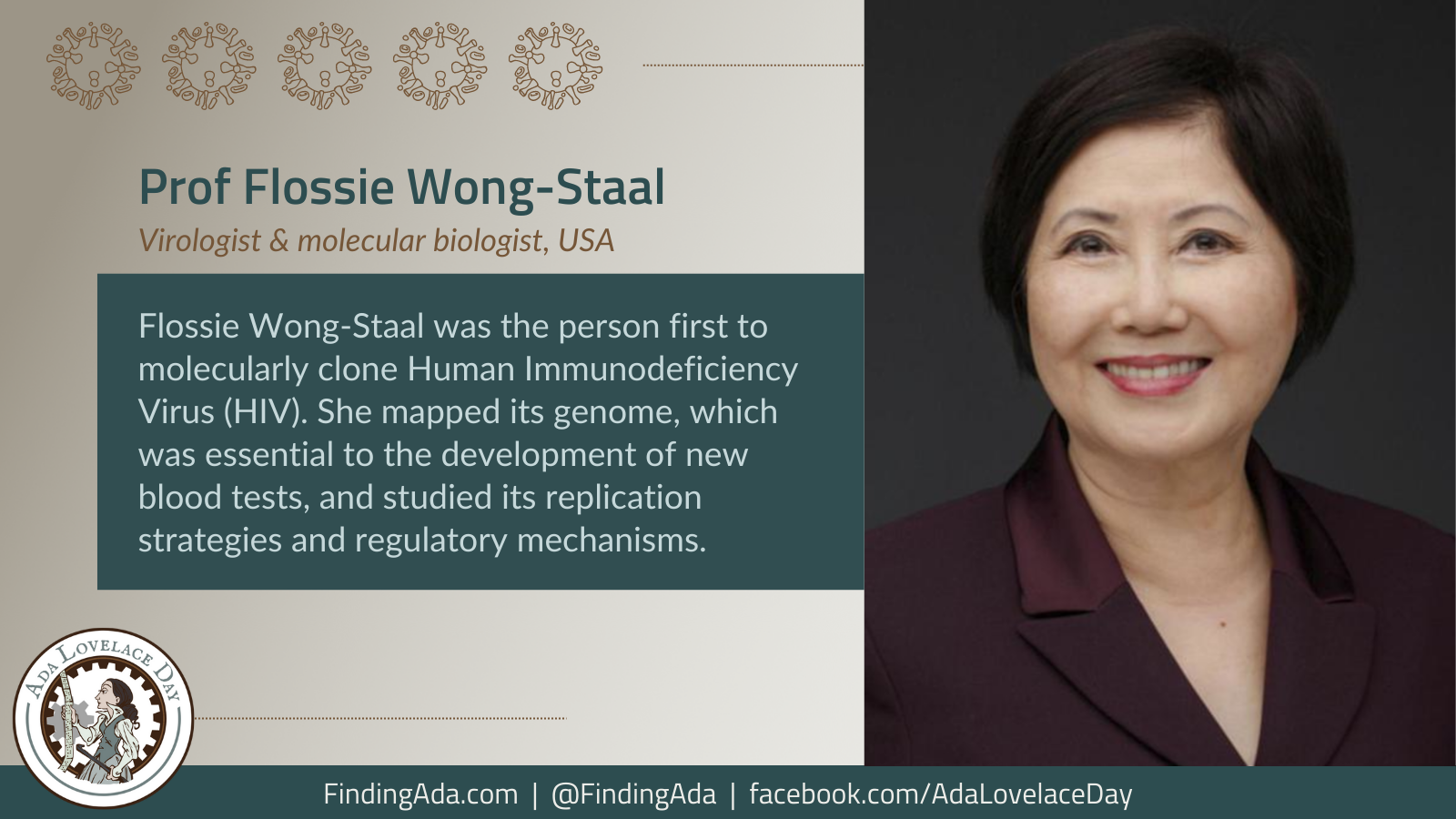
Professor Flossie Wong-Staal
Professor Flossie Wong-Staal, née Wong Yee Ching, 黄以静, was a virologist and molecular biologist who was the first to molecularly clone Human Immunodeficiency Virus (HIV) and created a map of its genes, which was crucial to proving that HIV causes Acquired Immunodeficiency Syndrome (AIDS).
Born in Guangzhou, China, in 1946, she and her family fled to Hong Kong after the Communist Revolution during the late 1940s. When she was 18. Wong-Staal moved to California to study bacteriology at the University of California, Los Angeles, then moved to San Diego for her postdoctoral research before moving to the National Cancer Institute in Maryland in 1973, where she refocused her research on retroviruses.
She discovered that human T-lymphotropic virus, HTLV-1 was the cause of T cell leukaemia, proving that retroviruses can cause human disease. Her work showed that the virus affected human DNA, activating cancer-causing genes called oncogenes.
She went on to work on a new disease that was very similar to HTLV-1, and in 1975, she successfully cloned HIV. She mapped the virus’s genome which both revealed how genetically diverse HIV is, but also allowed the development of blood tests based on detection of the viral genome rather than virus antibodies. She became a world leader in HIV research, studying its genetic structure, replication strategies and regulatory mechanisms.
She published over 400 papers on human retroviruses and AIDSand was the most-cited female scientist of the 1980s. In 1990, the Institute for Scientific Information named her as the top woman scientist of the 1980s.
In 1990, she founded the Centre for AIDS Research at UCSD. Her research focused on gene therapy and on HIV-1’s relationship to Kaposi’s sarcoma, which is a common ailment for people with AIDS.
Wong-Staal became professor emerita upon retirement from UCSD in 2002, and cofounded Immusol (later iTherX Pharmaceuticals), a biopharmaceutical company, becoming its chief scientific officer. She worked there on improving drugs for hepatitis C.
She was inducted into the National Women’s Hall of Fame in 2016, and Discover named her one of the 50 “most extraordinary women scientists” in 2002.
Wong-Staal died on 8 July 2020, aged 73.
Further Reading
- Flossie Wong-Staal, Wikipedia
- Flossie Wong-Staal, National Women’s Hall of Fame, 2016
- In Memoriam: Flossie Wong-Staal, Ph.D., National Cancer Institute, 13 July 2020
- Flossie Wong-Staal, Who Unlocked Mystery of H.I.V., Dies at 73, Faye Flam, The New York Times, 17 July 2020
- Flossie Wong-Staal (1946–2020), Genoveffa Franchini, Science, 11 September 2020